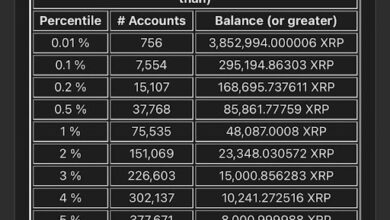
The Financial Supervisory Service (FSS) of South Korea has reaffirmed its stringent stance against Bitcoin spot and futures Exchange Traded Funds (ETFs). This decision has sparked criticism from industry insiders and legal experts who argue that such regulations hinder the country’s cryptocurrency market.
Firm Regulatory Position on Bitcoin ETFs
South Korea’s FSS has consistently upheld rigid regulations concerning cryptocurrency investments, including Bitcoin ETFs. In spite of the growing global acceptance of Bitcoin ETFs, South Korea continues to enforce its prohibitive stance. The FSS has not only banned Bitcoin spot and futures ETFs but has also restricted investments related to major cryptocurrency entities like Coinbase.
These actions are part of a regulatory framework established in 2017, aiming to mitigate financial risks associated with virtual currencies. However, critics argue that these regulations are outdated and lack a solid legal foundation in the current economic landscape.
An official from an asset management company expressed frustration, stating, “We were prepared to launch an ETF focused on Coinbase, but the FSS has temporarily halted our plans.” This sentiment resonates with a broader apprehension among financial institutions that South Korea is missing out on lucrative investment opportunities as other nations embrace cryptocurrency-related products.
Legal Concerns and Industry Criticism
Legal professionals have voiced concerns that the FSS’s actions may exceed its authority under the Capital Markets Act. Jeong Su-ho, an attorney with Renaissance Law Firm, contends that excluding investments in public companies like Coinbase from permissible investments lacks a strong legal basis.
He argues that while the FSS aims to safeguard investors, its approach may represent regulatory overreach rather than genuine investor protection. This regulatory atmosphere has stifled innovation within South Korea’s banking sector. Without clear guidelines and support, many asset managers hesitate to explore new digital currency products due to potential rejection by the FSS.
Global Perspective and Future Implications
As South Korea tightens its regulations, other global markets continue to expand their offerings of Bitcoin ETFs and similar financial instruments. For example, recent developments like Nasdaq’s introduction of trade options on BlackRock’s iShares Bitcoin Trust ETF indicate a growing acceptance of cryptocurrencies in the financial sector.
In South Korea, financial authorities have prohibited Bitcoin spot and futures ETFs. They have also recently denied the launch of funds investing in Bitcoin-related companies, such as Coinbase, citing investor protection as the reason. Nevertheless, critics argue that these measures are excessively restrictive, preventing South Korea from aligning with global trends in cryptocurrency regulation.
The contrast between South Korea’s stringent regulations and the openness of other markets raises questions about the country’s global financial competitiveness. As the demand for Bitcoin continues to grow, industry stakeholders worry that South Korea’s rigid approach might lead to missed opportunities for growth and innovation.
As the FSS persists with its ban on Bitcoin spot and futures ETFs, the call for more adaptable regulations becomes increasingly urgent. As global markets evolve, South Korea must reconsider its strategy to avoid falling behind in the rapidly evolving world of cryptocurrency investments.







